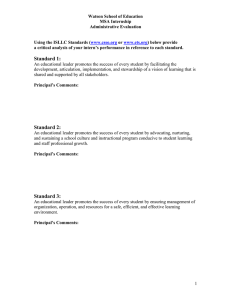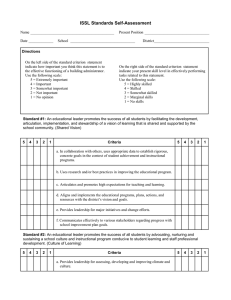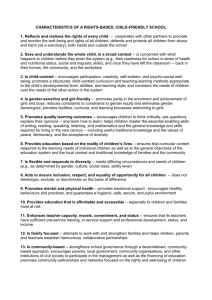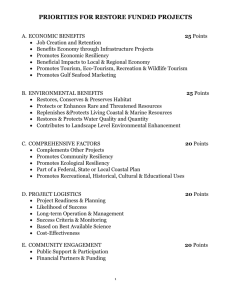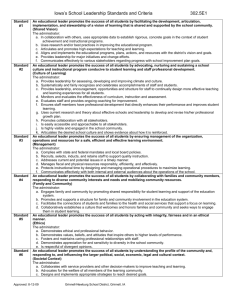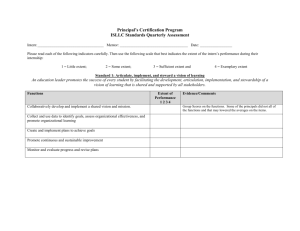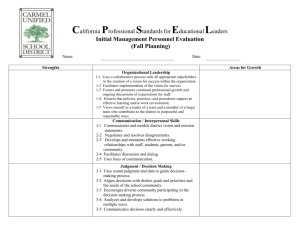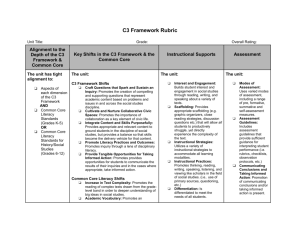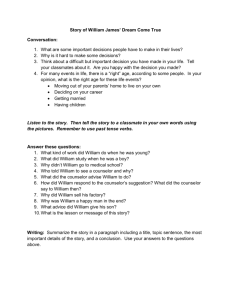Student Learning Objectives
advertisement
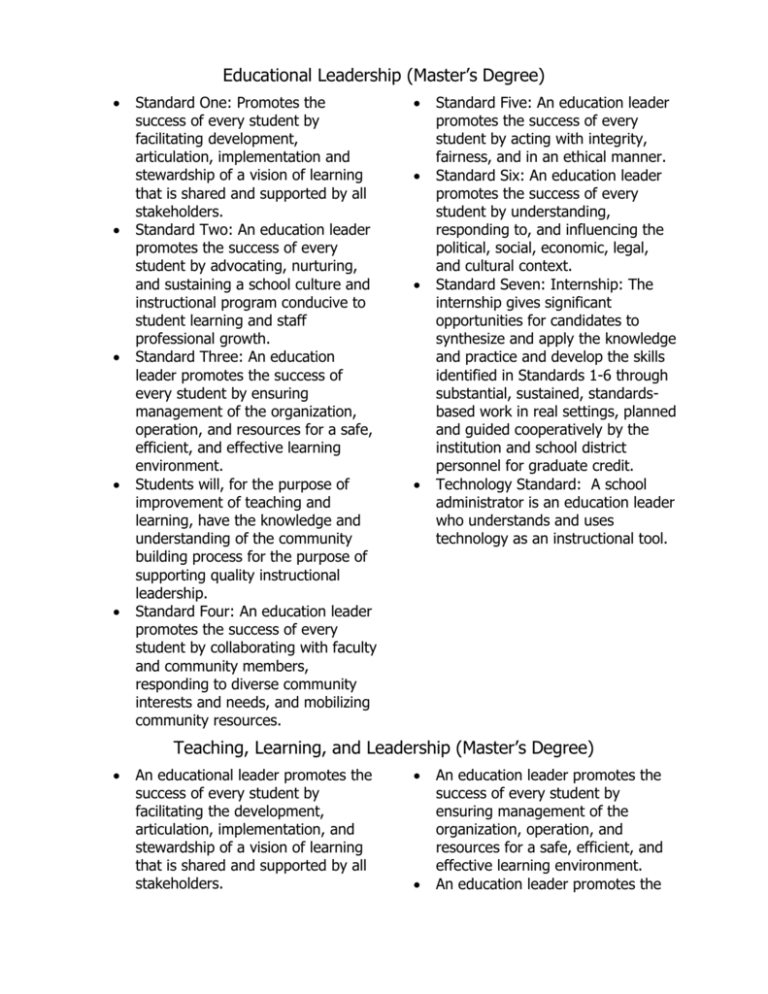
Educational Leadership (Master’s Degree) Standard One: Promotes the success of every student by facilitating development, articulation, implementation and stewardship of a vision of learning that is shared and supported by all stakeholders. Standard Two: An education leader promotes the success of every student by advocating, nurturing, and sustaining a school culture and instructional program conducive to student learning and staff professional growth. Standard Three: An education leader promotes the success of every student by ensuring management of the organization, operation, and resources for a safe, efficient, and effective learning environment. Students will, for the purpose of improvement of teaching and learning, have the knowledge and understanding of the community building process for the purpose of supporting quality instructional leadership. Standard Four: An education leader promotes the success of every student by collaborating with faculty and community members, responding to diverse community interests and needs, and mobilizing community resources. Standard Five: An education leader promotes the success of every student by acting with integrity, fairness, and in an ethical manner. Standard Six: An education leader promotes the success of every student by understanding, responding to, and influencing the political, social, economic, legal, and cultural context. Standard Seven: Internship: The internship gives significant opportunities for candidates to synthesize and apply the knowledge and practice and develop the skills identified in Standards 1-6 through substantial, sustained, standardsbased work in real settings, planned and guided cooperatively by the institution and school district personnel for graduate credit. Technology Standard: A school administrator is an education leader who understands and uses technology as an instructional tool. Teaching, Learning, and Leadership (Master’s Degree) An educational leader promotes the success of every student by facilitating the development, articulation, implementation, and stewardship of a vision of learning that is shared and supported by all stakeholders. An education leader promotes the success of every student by ensuring management of the organization, operation, and resources for a safe, efficient, and effective learning environment. An education leader promotes the success of every student by collaborating with faculty and community members, responding to diverse community interests and needs, mobilizing community resources, and communicating. An education leader promotes the success of every student by advocating, nurturing, and sustaining a school culture and instructional program conducive to student learning and staff professional growth. School Counseling and Leadership (Master’s Degree) Standard One: The school counselor understands the central concepts, tools of inquiry, and structures of the discipline, and can create experiences that support the learning process for students. Standard Two: The school counselor plans a school counseling program that is comprehensive in scope and developmental in nature. Standard Three: The school counselor plans counseling services that facilitate student development in academic, career, and personal/social domains. Standard Four: The school counselor exhibits human relations skills which support the development of human potential. Standard Five: The school counselor works collaboratively with school colleagues, parents/guardians, and the community to support students' learning and well-being. Educational Leadership (Specialist Option)
